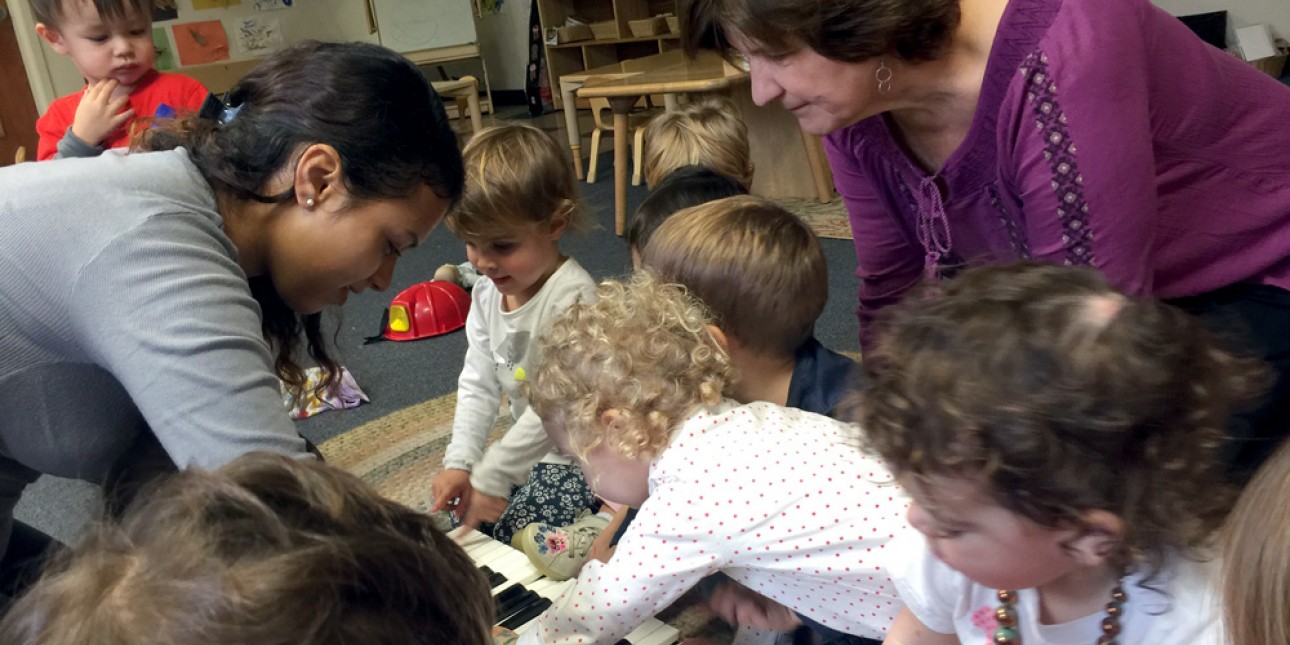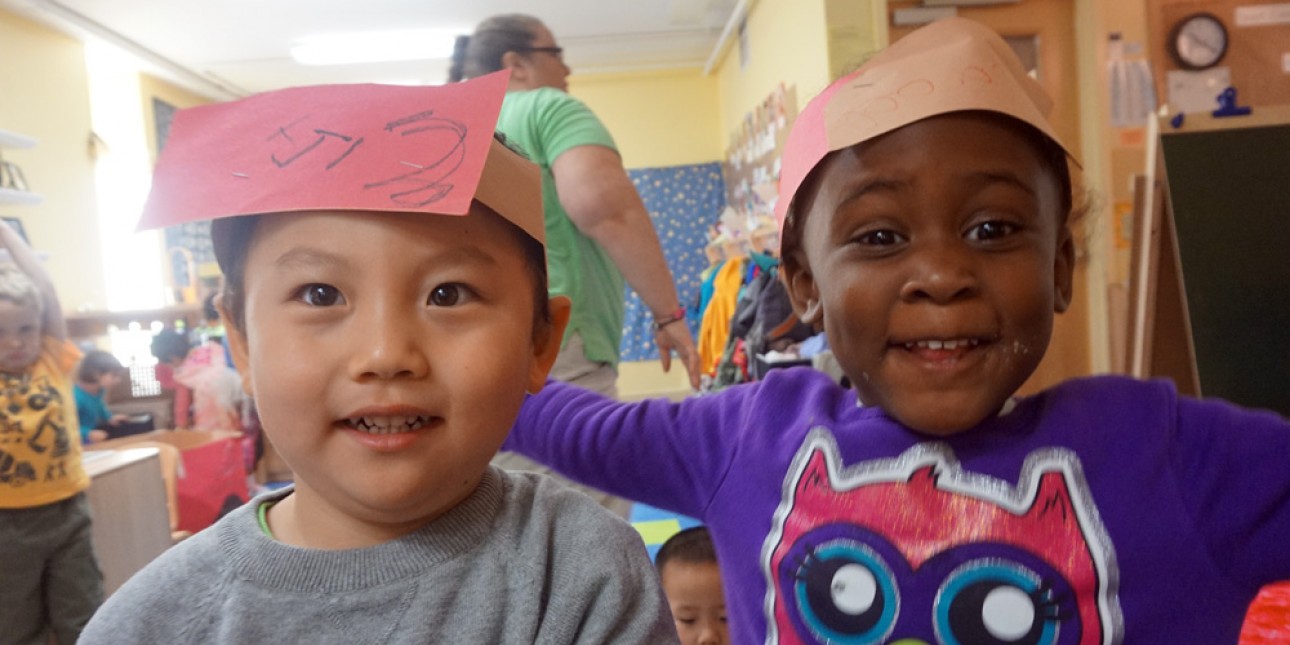December Message from Deb Green

Still Passionate After All These Years
With over 30 years in the field, I am delighted to say that my passion for Early Learning has not died!
Since returning from the annual conference of the National Association for the Education of Young Children (NAEYC), I have found myself spending considerable time reflecting on two workshops that I attended.
Ann Lewin-Benham, a woman in her late 70’s who for many years ran a Head Start Reggio-inspired early childhood program in Washington, DC, spoke about supporting children’s learning in a way that is appropriate for their level of cognition. Anne has written several books, two of which we are using in our lead teacher monthly book groups, Infants and Toddlers at Work: Using Reggio-Inspired Materials to Support Brain Development and Twelve Best Practices for Early Childhood Teachers. Both books are giving us much inspiration for reflection and discussion.
After her workshop, I took the opportunity to tell Ann how our teachers are using her books to create significant programmatic changes in their classrooms. She was thrilled when I mentioned that after reading a few chapters of her book, one PIC teacher said, “This is completely changing the way that I think about children and my classroom curriculum.”
Lillian Katz is another leader in early childhood education and a person whose research and writings have guided me and my peers for decades. Lillian led a workshop on her latest research, which focuses on the distinction between academic and intellectual learning. She reported strong findings that intellectual learning better supports where young children are developmentally and thus better prepares them for future learning.
She defines academic goals as those “skills that are learned by memorization and consist largely of giving the teacher the correct answers.” (Think about the 2-year-old that can recite her ABC's.) Dr. Katz argues that the common sense notion that “earlier is better” is not supported by long-term studies of the effects of different kinds of preschool curriculum models.
“Young children enter the classroom with lively minds–with innate intellectual dispositions toward making sense of their own experience, toward reasoning, predicting, analyzing, questioning and learning,” says Dr. Katz. “But in our attempt to quantify and verify children’s learning, we impose premature formal instruction on kids at the expense of cultivating their true intellectual capabilities – and ultimately their optimal learning.”
This kind of research is critical for a program such as PIC, where we fully believe in the idea of promoting intellectual development through classroom investigations and projects, such as this recent exploration by the Grasshoppers.
I left the conference feeling confident that PIC is leading in the field of early education as we strive to incorporate new approaches to teaching young children. I’ve known this in my gut, but It is ever so helpful to have timely and solid research to support us!
During our winter break, I wish you a wonderful time with family and friends filled with many meaningful investigations and projects with your children!
